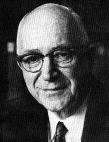Christians Do Better
Christians do better in life than their secular counterparts. But, unfortunately, you will likely never hear about these multiple recent studies done throughout the world. When these critical studies are done, they uniformly show that Christians achieve more success in life no matter how that success is defined.
Christians also improve society through their contributions to secular charities as they give and participate more than others. Furthermore, Christians who are more active in church contribute more than less active Christians.
But there is so much more; Christians experience more good things in life and less harmful.
Perhaps the most important index of success in individual life is whether that person is “happy,” depending on how individuals define happiness. People can be fabulously wealthy and yet be profoundly unhappy.
Christians Are Happier

Image by Sasin Tipchai from Pixabay
Philosophers and social scientists have pondered the causes of happiness among people for centuries. Philosophers from Aristotle to Jacques Rousseau to Bertrand Russel have considered personal satisfaction one of the most important goals of human existence.
What use is life if you are always unhappy? God created us for a purpose; we are not here to take up space. When we find that purpose, we will likely find happiness.
Research indicates that the representative “happy person” is a young, healthy, well-educated, well-paid, optimistic, and extroverted individual. The happiest of these also tended to be religious, married, with high self-esteem.
Your gender or level of intelligence does not correlate with being happy.
People who attend religious services are more likely than secular people to join non-religious groups such as charities and clubs. The tendency of religious people to be more socially oriented may explain why religious people are less depressed and have fewer psychiatric issues than their secular neighbors.
Religious people see their lives as fulfilling a grand purpose; their lives have meaning in an eternal sense. On the other hand, those who view their existence and influence as ending upon death frequently view their life in a nihilistic manner.
Christians Are Less Depressed

Image by Jill Wellington from Pixabay
It should not be too surprising that if Christians are happier than their secular neighbors, they should also be less depressed.
The relationship between Christianity and reduced depression has only recently been uncovered. Psychiatrists have tended not to be religious and view religion as an obstacle to mental health rather than an asset.
For example, perhaps the most famous psychiatrist Sigmund Freud believed Christianity was a cause of mental health problems and even as a form of mental illness. Freud considered religion as a “poison” leading to “neurosis” and a “childishness to be overcome.”
Another famous psychiatrist from the early twentieth century, Albert Ellis, denounced religion as a “pathology” to be overcome.

Allport – By Dr. C. George Boeree – http://webspace.ship.edu/cgboer/allport.html, FAL, Link
More recently, Harvard’s Gordon Allport viewed sincere belief in religion to be “childish, authoritarian, and irrational.”
But then ideas changed. Rather than the opinion of atheistic psychiatrists who had little if any empirical evidence, actual research revealed the positive association between religious belief and mental health.
Those with religious beliefs have a quicker recovery from depression than their secular neighbors. The faster recovery from depression seems to also be valid with bipolar illness.
Risk of Suicide
Suicide rates are rapidly increasing in the United States. The COVID pandemic and the social isolation it produces have led to an epidemic of suicide as well. The annual suicide rate has increased 24% between 1999 and 2014 as more people take their lives.
This suicide rate makes finding means for suicide prevention critical.
One often neglected means for the prevention of suicide is through religious belief. A large study of over one million people showed that,
In fully adjusted models analysing 1119 cases of suicide, Roman Catholics, Protestants and those professing no religion recorded similar risks. The risk associated with conservative Christians was lower than that for Catholics (HR = 0.71, 95% CI 0.52–0.97).
It makes sense that since Christians are happier and less depressed, their risk of suicide would be less.
Christians and Physical Health
 Christians are healthier than their secular counterparts. One study evaluated the risk of death during a decade of life among adults between 2004 and 2014. The researchers evaluated multiple variables in their statistical analysis, including religious attendance, the importance of religion, religious affiliation, gender, race, ethnicity, education, and income levels. They found that,
Christians are healthier than their secular counterparts. One study evaluated the risk of death during a decade of life among adults between 2004 and 2014. The researchers evaluated multiple variables in their statistical analysis, including religious attendance, the importance of religion, religious affiliation, gender, race, ethnicity, education, and income levels. They found that,
After adjustment for confounders, attendance at religious services had a dose-response relationship with mortality, such taht respondents who attended frequently (at least once a week) had a 40 percent lower hazard of mortality … compared with those who never attended.
The study was careful to control for multiple other variables such as gender, race, ethnicity, education, and income as other determinants of health. They opined that people with strong religious beliefs tend to follow healthier lifestyles without smoking or consuming alcohol. Additionally, belonging to a community of faith and helping others may also contribute.
Christians and Charitable Giving
 Karl Zinsmeister noted in his article for Philanthropy that
Karl Zinsmeister noted in his article for Philanthropy that
In study after study, religious practice is the behavioral variable with the strongest and most consistent association with generous giving.
The charitable contributions of Americans to the poor and needy in America and throughout the world are genuinely staggering and considerably more than their secular neighbors. While their secular neighbors may wish to use more government intervention to force contributions to their pet projects, religious people give their own money.
- The article notes, for example, that Americans with any religious affiliation made an annual charitable contribution of $1590 versus $695 for those with no religious affiliation.
- Two-thirds of those people who attend religious services at least twice a month give to secular causes, whereas this is true of only one-half of their secular neighbors; also, the average spiritual contribution is 20 percent higher
- The religious contribute an estimated $1.2 trillion of socio-economic value to the American economy. That is more than the combined revenue of America’s ten biggest tech giants and more significant than the national economy of all but the wealthiest 14 nations.
- American churches and synagogues sent 450 percent more to needy people every year than the Gates Foundation.
Christians and Education
Popular media portrays religious Christians as ignorant and backward with little formal education. The truth is much different.
The twentieth century has been full of such charges. The common perception is that religion is not compatible with intelligence or education. Thus, for example, Richard Hofstadter won a Pulitzer Prize for his book Anti-Intellectualism in American Life. He argued that a preference for ignorance is prevalent in American Christianity.
Richard Dawkins, the infamous biologist who rales against religious belief, described his associates as “The Brights,” clearly suggesting religious believers were less brilliant in their intellectual lives. As a result, the “Brights Movement” has become popular among those who hold a world view of philosophical naturalism.
But is that a reasonable charge; are Christians less educated than their secular peers, or is this just a trope promulgated by self-righteous secularists bent on damaging the reputation of Christians?
Sociologists have recognized for many years the positive effect of religious belief on childhood education performance. For example, James Coleman noted in his publication Social Capital in the Creation of Human Capital that the high school dropout rate for weekly church attenders was about half of what it is for those who do not attend church.
The positive effects of religion on educational attainment are independent of family and personal effects.
William Jenyes substantiated these findings in The Effects of Religious Commitment on Academic Achievement of Urban and Other Children. Students identifying as “religious” are involved in church youth groups and attend church services weekly. As a result, the religious students scored higher on standardized tests gauging performance in math, science, social studies, and reading and were less likely to be held back in school. He also found that students who attended church weekly are also significantly more likely to graduate and receive a high school diploma.
There is an achievement gap in America between white students and their African American classmates. This gap exists on every measure of academic achievement, standardized test results, grades, being held back in school, and graduation rates. The average African American student scores several grade levels behind white students of the same age. These differences only increase over time until graduation from high school.
An achievement gap also exists between white students and Hispanics. This difference may represent the current immigration status of many Hispanic students. However, similar achievement gaps once appeared for other ethnic minorities but quickly disappeared; many educators believe this will eventually occur for Hispanics.
The achievement gap between whites and their Hispanic counterparts decreased, approaching graduation supporting its eventual resolution.
The eventual resolution of achievement gaps is supported by research that shows the gap between whites and their Hispanic counterparts decreases as they approach graduation – the exact opposite of the white – African American achievement gap.
This achievement gap has proven to be remarkably resistant to correction by government intervention. For example, a primary objective of both the Head Start program and the No Child Left Behind program was to eliminate the education achievement gap between white students and minority students.
Religious education can mitigate the achievement gap between white and African Americans.
- The achievement gap between whites and African Americans is considerably smaller in religious schools than in public education,
- The achievement gap is smaller among religious students,
- The achievement gap is also smaller among students having intact families with a father and mother both at home
There is no achievement gap when social scientists controlled for all three parameters. Under these circumstances – in religious schools with intact families – African American students do as well as white. Finally, both groups excel in academic performance when compared to public schools.
College Education

College classroom – Image by Nikolay Georgiev from Pixabay
There has been the widespread perception that religious people lack education. Two studies performed by Alfred Darnel and Darren Sherkat support this stereotype. These two sociologists demonstrated that some small and marginal Christians do not send their children to college.
However, it is inappropriate to generalize these findings to all of religious America. When Kraig Beyerlein distinguished groups within Protestant fundamentalists, he found that Evangelical Protestants were second only to Jews in being college-educated, significantly exceeding all other religious groups and non-religious.
Since religious students do better on standardized tests and achievement tests in secondary education, it would be surprising if they did not show superior performance in college. One study indeed demonstrated that the more students attended church, the more likely they would go to college.
Evaluation of the General Social Survey shows that there is a correlation between church attendance and educational achievement. These data indicate that weekly church attenders are more likely than those who never attend church to have gone to college and less likely to drop out of high school among white and African American students. These differences are very statistically significant.
In short, the idea that churchgoers are less educated is demonstrably false.
Many in secular America hold the other false belief that college graduates lose their religious faith in college. However, a recent Pew Research Center study called the Religious Landscape Study found differently. This study was a very comprehensive evaluation of college graduates and their religious beliefs.
They found that in America, 66% of college graduates were Christian; the largest component was Evangelical Protestant. Among college graduates, only 25% were religious nones.
They also found the following among college graduates:
- Belief in God – 57% certain, 19% fairly certain,
- Importance of religion – 47% very important, 25% somewhat important
- Attendance at religious services – 36% at least once a week, 33% once or twice a month
- Frequency of prayer – 51% at least daily, 15% weekly
- Belief in heaven and hell – 63% believe in heaven, 46% believe in hell
This study shows that college graduates are a reasonably religious group and that religion remains an essential face in their daily lives.
Occupational Prestige
People often choose a profession for its prestige and monetary rewards rather than personal fulfillment. Occupational prestige may not be the best choice for most people in the long term, but it serves as an essential measure in determining “success.”
Social scientists have carefully studied occupational prestige as one metric for personal success.
A national sample of Americans in 1947 was presented with a list of eighty-seven occupations and asked to rate the “general standing” of each job as excellent, good, average, somewhat below average, or poor. These ratings computed scores for each occupation with a score ranging from 20 to 200. Thus, for example, the highest occupational prestige was that of a “U.S. Supreme Court Justice” with a score of 94, and the lowest was “Show Shiner” with a score of 34.
Social scientists repeated the study 15 years later, and the results were identical. They found the prestige of occupations is related to the amount of education required for their achievement.
Analysis of the occupations of both whites and African Americans showed weekly church attenders were more likely than those who did not ever go to church as having an upper-prestige career and significantly less likely to hold a low prestige occupation.
Given that religious Americans are more likely to go to college and graduate, it should not be surprising that this would not translate into having a more prestigious occupation requiring more education.
Religion affects occupational success through education, doing better in school, less likely to get into trouble with the law, and increased graduation rates.
Wealth

Image by Nattanan Kanchanaprat from Pixabay
Many adults recognize personal wealth as an important goal. Wealthy adults have more personal freedom and choices available than do poor adults.
While being wealthy may not be one of the most important goals for most Americans, it is still a metric used by many to judge personal success. Critics of religious America assume most religious people are poor, uneducated with little understanding of the “real world.”
Social scientists have demonstrated that religious people graduate more, have higher occupational prestige, have increased high school and college graduation rates, and have better physical and mental health than their secular neighbors. Thus, it should not be surprising that religious Americans tend to achieve more personal wealth than others.
It turns out to be challenging to determine the wealth of a group; surveys concerning personal or family wealth are not accurate. But there are indirect measures of wealth that social scientists can evaluate.
Weekly church attendance correlates with a far greater tendency to house ownership than those who never attend among whites and African Americans.
Another measure is stock ownership. Responses to the question, “In the past twelve months have you invested money in a stock or mutual funds,” were tallied. Results show that 18 percent of weekly church attendees had invested in the stock market compared to only 9 percent of non-attenders.
Another recent study from Duke University shows that Catholics tended to have increased wealth mobility than others. Individuals moving from one economic status to an improved financial situation defines wealth mobility.
It is a myth that there is no wealth mobility in America. Wealth mobility often occurs when an individual achieves an education or trade, is in a stable relationship, does not commit criminal activity, and is frugal with their money. These activities are more common in religious Americans resulting in improved economic status with movement up the economic ladder.
A study at Harvard University shows how religious beliefs and the stability of the family positively affect upward social mobility. They noted,
For instance, high upward mobility areas [of the United States] tended to have higher fractions of religious individuals and fewer children raised by single parents. Each of these correlations remained strong even after controlling for measures of tax expenditures.
Religious groups have more stable households
Religion and Juvenile Delinquency
Juvenile delinquency is a serious problem throughout the United States, leading to increased incarceration, alienation from family, decreased job prospects, and reduced life potential. Therefore, it is a common goal of many social scientists to evaluate various means for reducing juvenile delinquency, attempting to improve the lives of these children and the overall cost to society.
One of the significant preventative measures that only recently has been scientifically evaluated is the inverse relationship between religious involvement and juvenile delinquency; the more religious, the less delinquency. For example, one review found there to be an,
inverse relationship between various measures of religion and spirituality and measures of delinquency and illegal substance use. Results show that attendance of religious services is negatively and significantly associated with arrest, “light and “heavy” crime, and marijuana use. In addition, religious affiliation, importance of religion, and importance of spirituality were all negatively and significantly affiliated with marijuana use. Thus, attendance of religious services once a week or more was found to be most effective among the different measures of religion in deterring delinquent behavior, whereas religious affiliation, and perceiving religion and spirituality were shown to be negatively associated with marijuana use, but not with arrests, “light” or “heavy” crime, nor cocaine use. With respect to these findings, several governmental policies should be further analyzed to verify their efficacy such as tax breaks for religious organizations and further spending on faith-based initiatives aimed at helping to reduce delinquency.
Conclusion
One of the greatest paradoxes is that secular America views their religious neighbors as ignorant and poorly educated while frequently the reverse is true.
Christians are also healthier, spend less time in jail, have less depression and score higher on measures of happiness, and in general, do better in life than their secular neighbors.
Religious Americans also give more to secular charities than their secular neighbors by far. But, again, this is because lay individuals view the government as the provider for charities, while religious people view taking care of the poor as their responsibility.
Generally speaking, having society choose where to donate their money is a much more efficient allocation of capital than through inefficient government bureaucracy.
Religious Americans fall into the modern traps of drug use, alcoholism, gangs, high school dropouts, and other social ills less frequently than their secular neighbors. So it should be no surprise religious people enjoy life better – because they do better.


